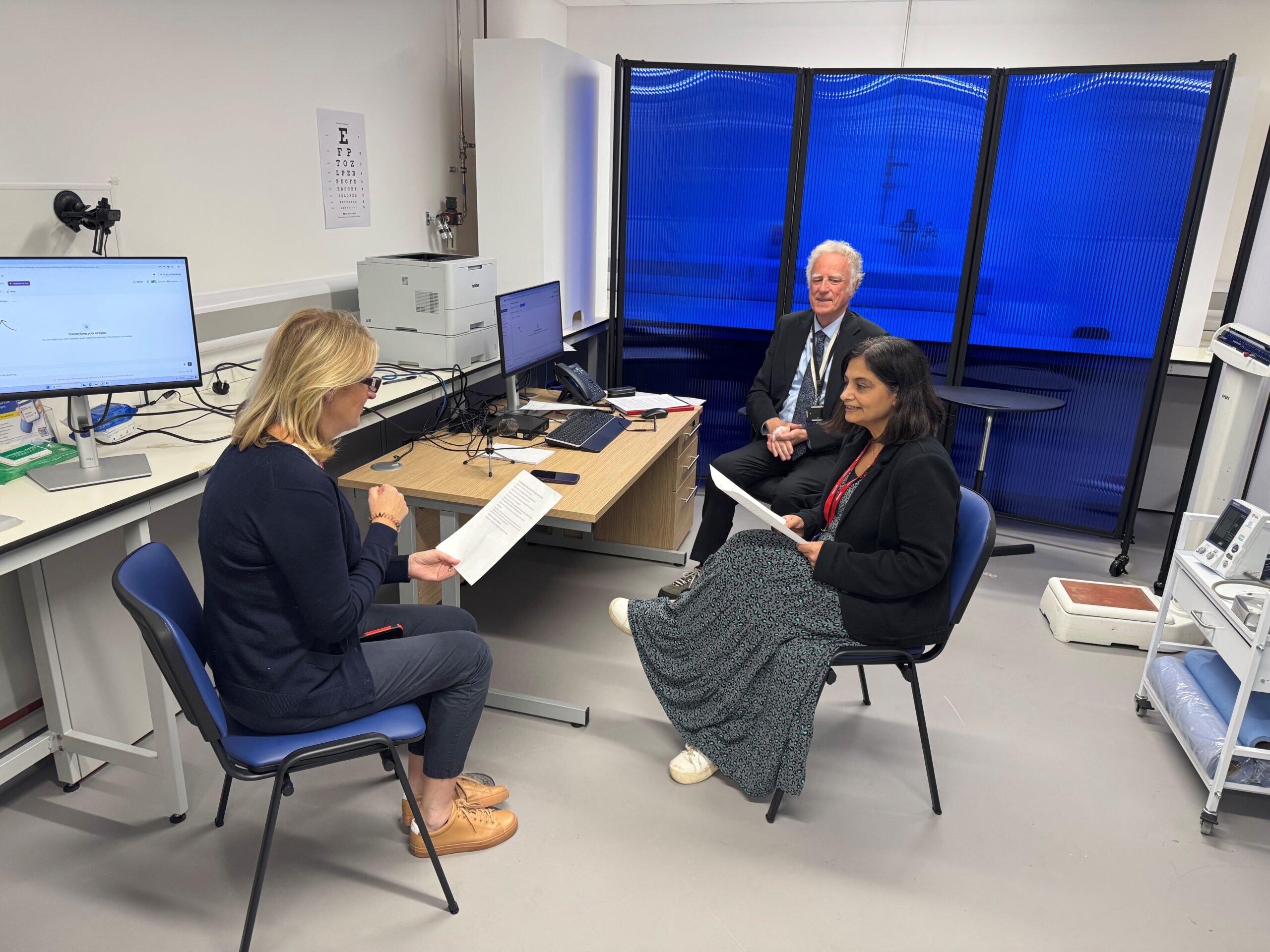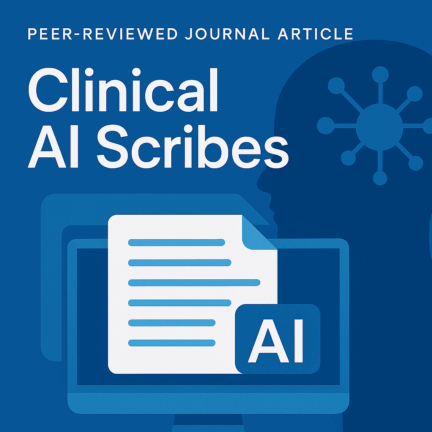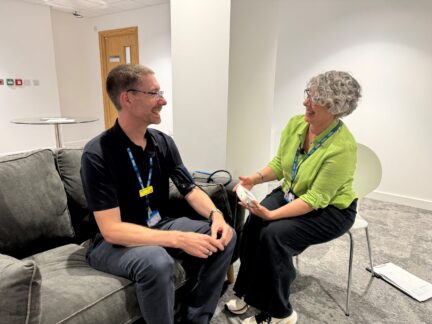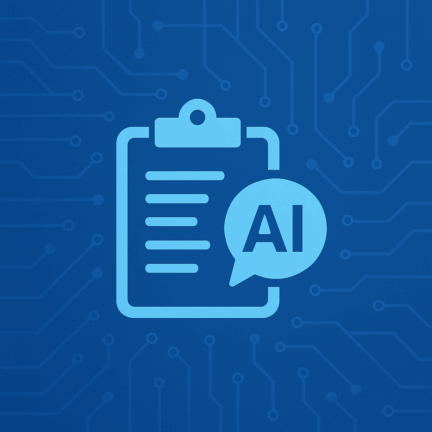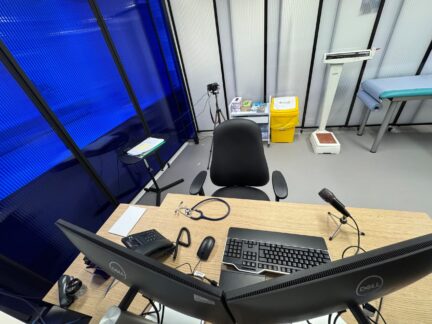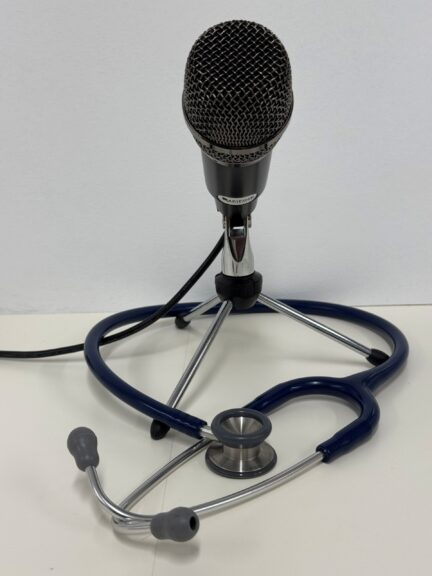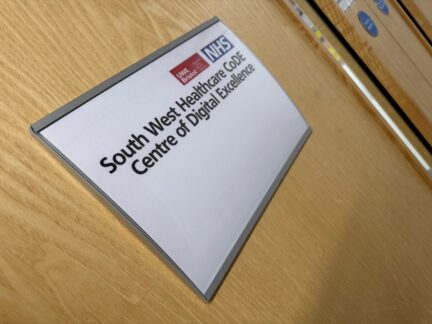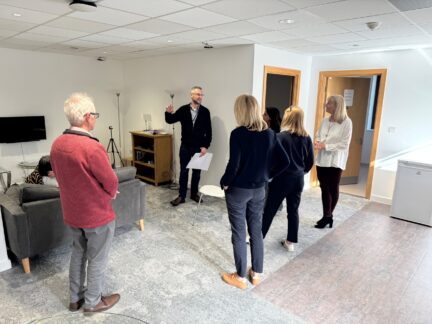
On Tuesday 23 September 2025, CoDE was delighted to welcome Dr Rupa Joshi, Deputy Medical Director for Primary Care and Responsible Officer at NHS England South West Region, together with senior colleagues from NHS England and the NHS Confederation. Joining the visit were Ruth Rankine, Director of the NHS Confederation Primary Care Network, Scott Riley, Assistant Director for Primary and Community Development for NHS England South West Region, Catriona Ketiar, Regional Chief Pharmacist, and Jason Peett, Head of the Pharmacy Integration Programme, both also from NHS England South West Region.
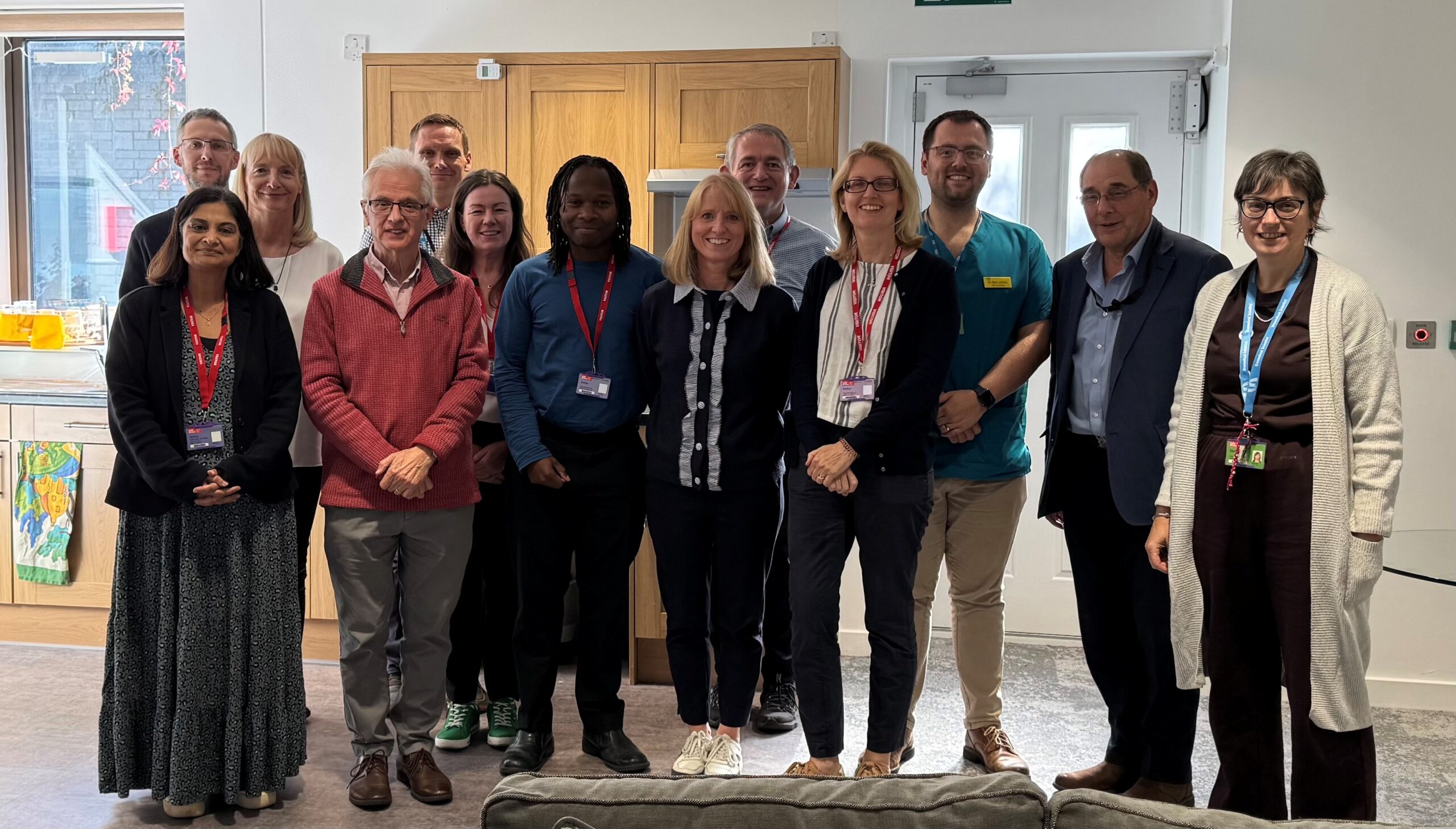
The visit began with a tour of CoDE’s purpose-built facilities. Guests were shown the simulated GP back-office, the GP surgery with its waiting and consultation rooms, and the domestic setting that replicates a home or care home environment. These spaces are designed to provide a safe and realistic setting where new digital tools can be tested, refined and evaluated before being introduced into frontline services. The group also observed and participated in demonstrations of Clinical AI Scribes in action, supported by colleagues from the University of the West of England. These live demonstrations showed how the technology can automatically capture and structure consultation notes, reducing administrative burden and supporting clinicians to focus on patient care.
Alongside the demonstrations, the group discussed CoDE’s findings to date, including the publication of our first report and journal publication. This work shows that Clinical AI Scribes have significant potential: they can improve the flow of consultations, increase eye contact between clinicians and patients, and save substantial amounts of time, in some cases up to 40 minutes per session, while reducing overruns by as much as ninety percent. At the same time, our research highlights important limitations that need to be addressed before these tools can be widely adopted. Performance is affected by practical factors such as microphone type and placement, background noise, and the presence of accents or speech impediments, and the most common errors arise from omissions, where clinically important details are not always captured. These findings underline the importance of governance, clinical oversight, and careful implementation to ensure safety and reliability.
The visit concluded with a forward-looking discussion about CoDE’s priorities for the coming years. We discussed how we could develop experiments that explored the use of AVT in group clinics and how AI could support the Red Tape Challenge in the area of Pharmacy – in particular the transfer from acute to community. Our shared focus is on leading the evolution of digital healthcare by combining advanced technology with rigorous evidence, continuous learning, and collaboration across the health system. By working in partnership with clinicians, academics, and policy leaders, CoDE will continue to develop and test innovations that empower healthcare professionals and enable the delivery of exceptional, patient-centred care.
